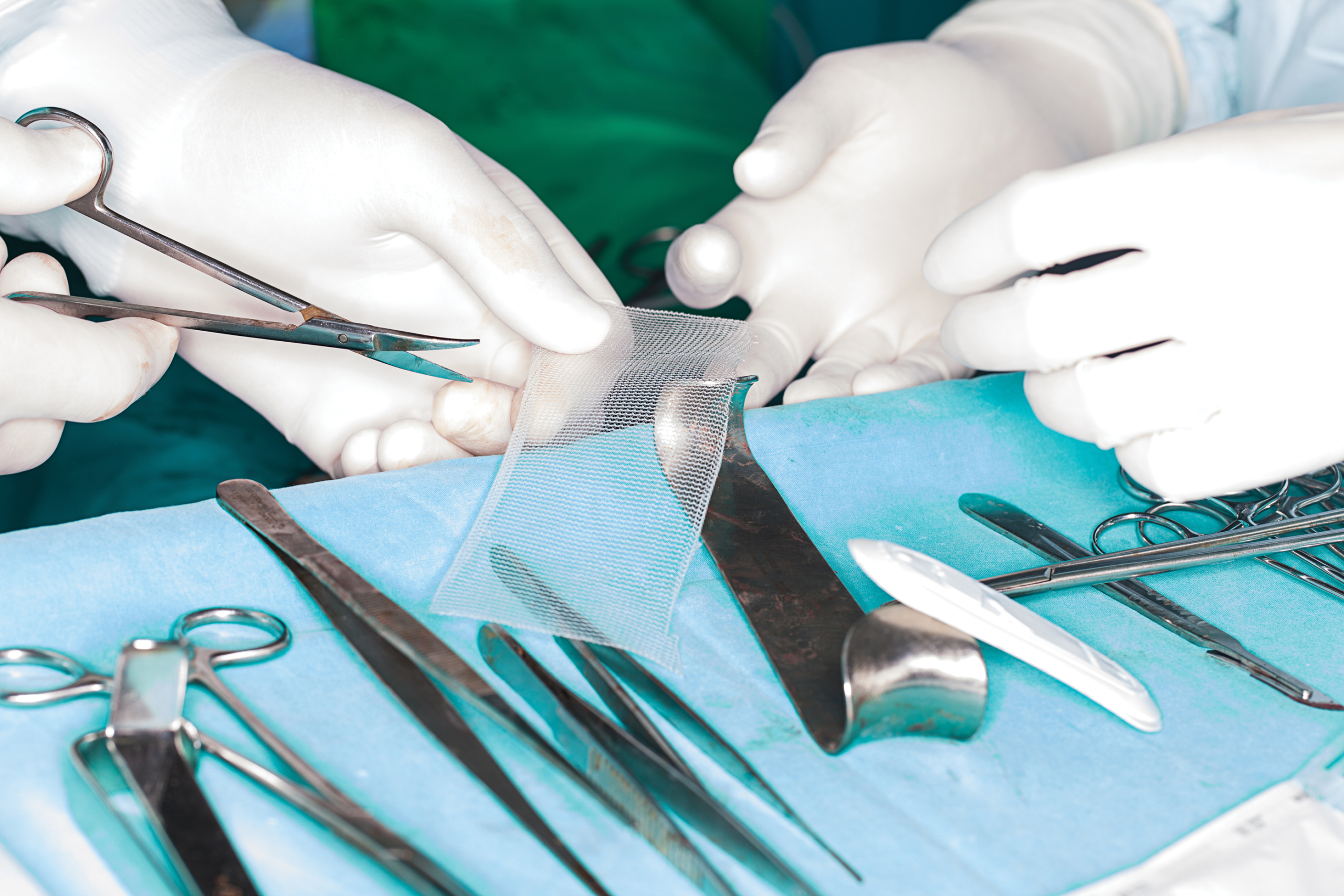As I stated last week in Part One, “95% of groin hernias require reinforcement to ensure the hernia will not reoccur.” Recurrence is to be avoided because when it happens, the hernia becomes much more complex and the second surgery more difficult.
Most hernia surgeons offer polypropylene (think plastic) mesh for repair of the defect. Polypropylene has been used for decades in this country with success but also with some side effects and issues because it is a synthetic.
Polypropylene is made to be reactive so that it incorporates into the tissues. This reactivity, however, can cause a chronic sensation and sometimes even chronic discomfort due to the continued low-grade inflammatory reaction. In the medical literature, this is called a “foreign-body sensation.”
Another drawback of polypropylene mesh can be fixation or erosion into adjacent internal organs, such as the gastrointestinal tract. This can become a very significant, if not life-threatening, problem for a patient. It is my opinion that if polypropylene mesh is utilized for repair, the mesh should always be carefully placed in layers of the abdominal wall, thus greatly minimizing these types of complications. Even with this precaution, however, there remains the problem of the foreign-body sensation mentioned in the above paragraph.
Because polypropylene is not 100% ideal, surgeons have been looking for a biologic mesh (think organic tissue) to repair hernias for over 150 years. Very basically, a biologic must incorporate and/or become the patient’s own tissue to be successful.
Surgical Services at Prowers Medical Center
Surgical Services at Prowers Medical Center
Expert care close to home.
• Highly experienced, board-certified surgeons
• Most procedures are minimally invasive
• Expert surgical support staff and state-of-theart facilities
For appointments, call 719-336-7005.
For appointments, call 719-336-7005.
There are now biologic, FDA-approved meshes commercially available to repair hernias. In my practice, I have extensively used a biologic matrix of connective tissue derived from a sheep (ovine) source, with outcomes as good or better than polypropylene. It appears, although studies over five years in length have not been fully completed, that this particular product is comparable to polypropylene in terms of reducing the risk for recurrence and the need for another hernia repair. It also appears that this biologic is reducing the likelihood—if not completely eliminating the difficulties—of a foreign-body sensation. In addition, it appears that with this mesh there is little, if any, possibility of the severe difficulties that can arise with erosion into organs such as the bowel or colon.
When I evaluate a prospective hernia-repair patient, I always have a complete and full discussion with them about options for mesh reinforcement—polypropylene versus the biologic mesh.
It should also be pointed out that an uncomplicated elective hernia repair is associated with a 10 to 14-day recovery period in the large majority of patients. Conversely, waiting and having to undergo emergency hernia surgery is quite variable and may result in recovery periods that extend into months. Emergency surgery is also associated with an increased risk for recurrence and a second hernia surgery.
 Skip to content
Skip to content





Leave A Comment